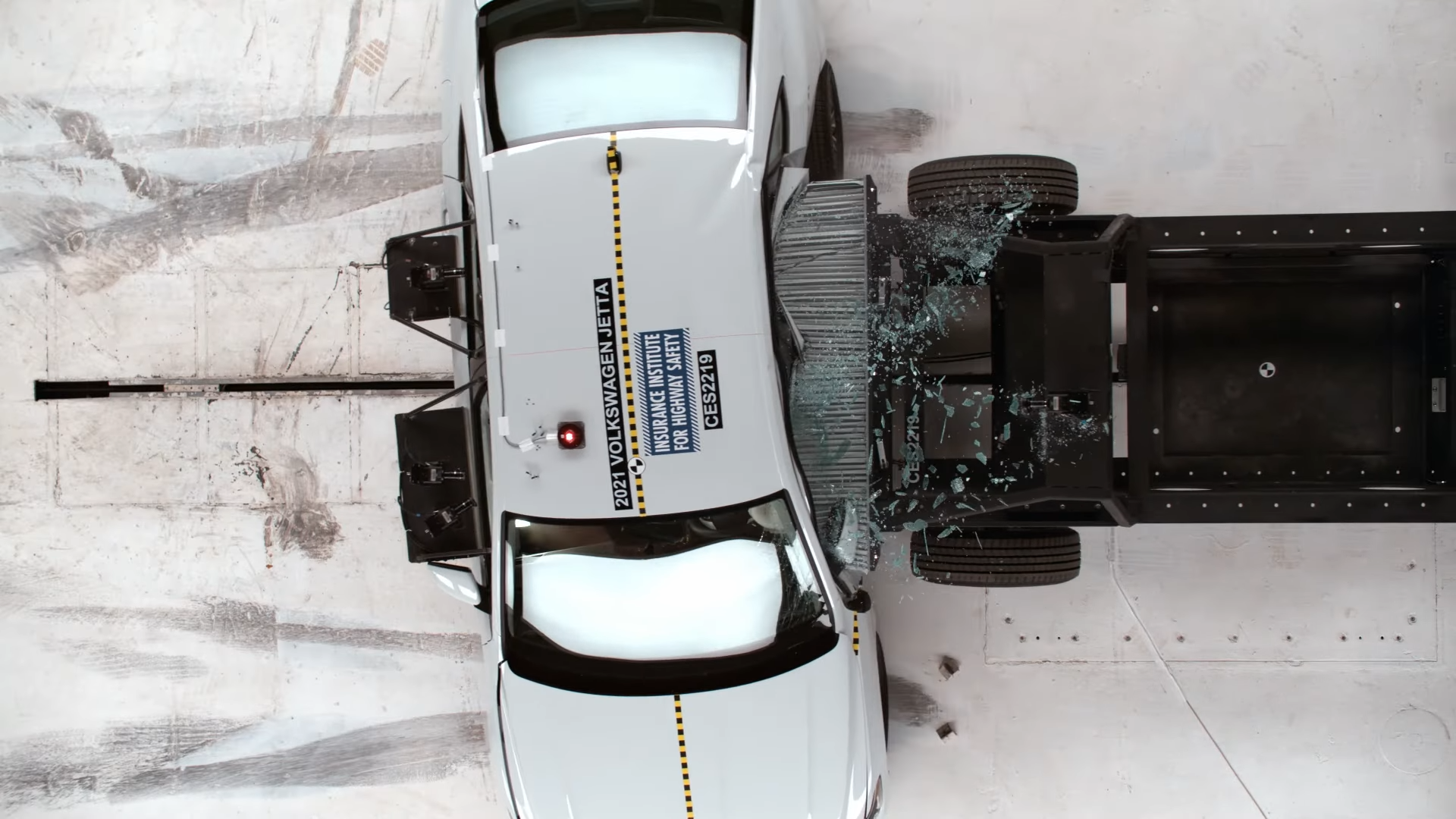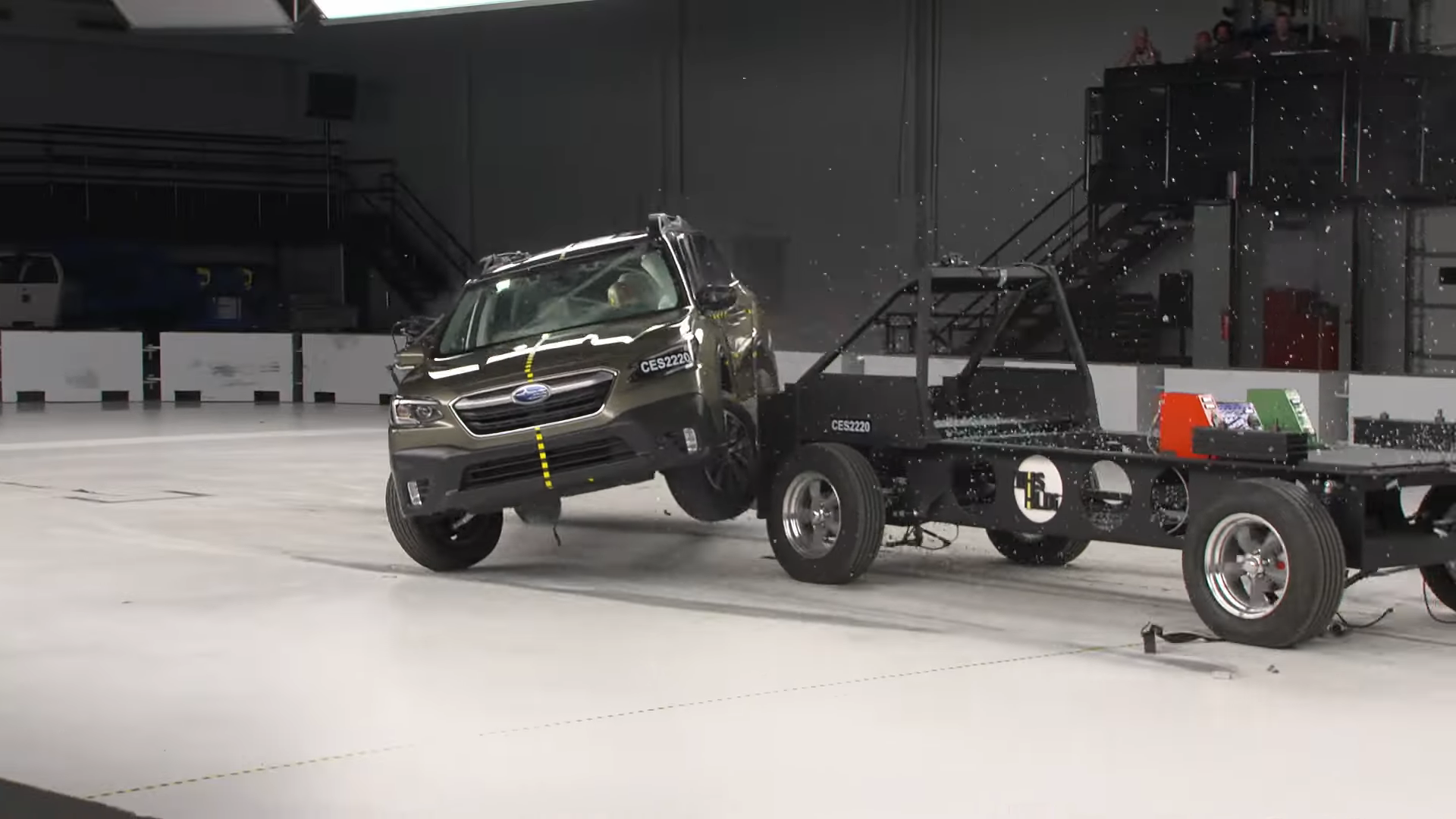The Subaru Outback Is The Only 'Good' Midsize Car In IIHS's New Side Impact Test
The institute's updated side-impact tests use a heavier barrier traveling at a faster speed than previous years.
This may strike some readers as a bit of a hot take, but I think it's generally good when your car protects you from a collision. As the size of vehicles on American roads grows ever larger, and drivers become ever more distracted, it's more and more important for cars to ensure their occupants are safe.
With that goal in mind, the IIHS recently revamped its side-impact tests to more accurately simulate the forces involved in real-world crashes. The impact barrier, a big block on wheels designed to hit like an SUV, now weighs more and moves faster. Those factors, combined with its SUV ride height, mean that midsize sedans are struggling — and even failing.

The IIHS recently tested seven midsize sedans against the new criteria, and found only one worthy of a Good rating: The 2022 Subaru Outback. Debate can rage, given the Outback's wagon silhouette and lifted ride height, as to whether it truly deserves entry into the "midsize car" class, but those two differences seem to have made the car safer for side impacts.
The Hyundai Sonata and Volkswagen Jetta were each found to be "Acceptable," and the Honda Accord "Marginal." The rest of the crowd, the Camry, Altima, and Malibu, all earned "Poor" ratings — primarily due to their size.
David Harkey, president of the IIHS, said as much: "With vehicles that sit lower to the ground, the striking barrier hits higher on the door panel." With a test built to simulate impact from a "higher-riding pickup or SUV," a low ride height is an inherent disadvantage — the test barrier hits these cars on the windows and pillars, rather than the door panels.
The IIHS's test is biased in favor of high-riding crossovers and trucks, but it's a reflection of the world (and the cars) around us. Cars have grown, ride heights have increased, and they've put the rest of us at risk.
